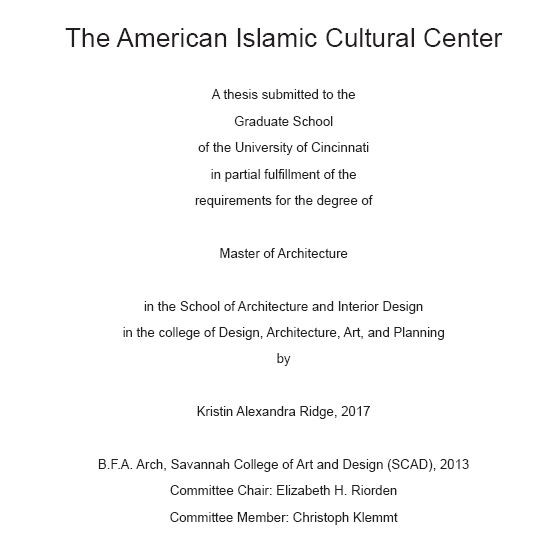
Despite the fact Islamic architecture historically follows very traditional typologies that have remained unchanged for nearly thousands of years, the functions and aesthetics it serves are largely of another people and time outside of 21st century westernized countries. Its inability to evolve and adapt characteristics specific to modern western values come at a sensitive time when American-Muslims find themselves at the center of the nations political stage, and ultimately misrepresents their unique position within our society. What is currently being created does not fully explore new forms of Islamic architecture and lacks the stylistic and programmatic diversity that is necessary towards repairing and building stronger communities. Because of this, many members outside of the Muslim community are hardly presented with the opportunity to engage, interact with, and learn more about Islam and its complex history.
I agree to the terms outlined below:
You agree to upload and assign Mosqpedia Database the rights to use the content worldwide and in perpetuity across all current and future media platforms. Mosqpedia Database may edit, copy, adapt and translate your contribution.
The content will be distributed under the Creative Commons Attribution-Deed – Attribution-NonCommercial-NoDerivatives 4.0 International – Creative Commons
All data will be stored in line with data protection regulations.